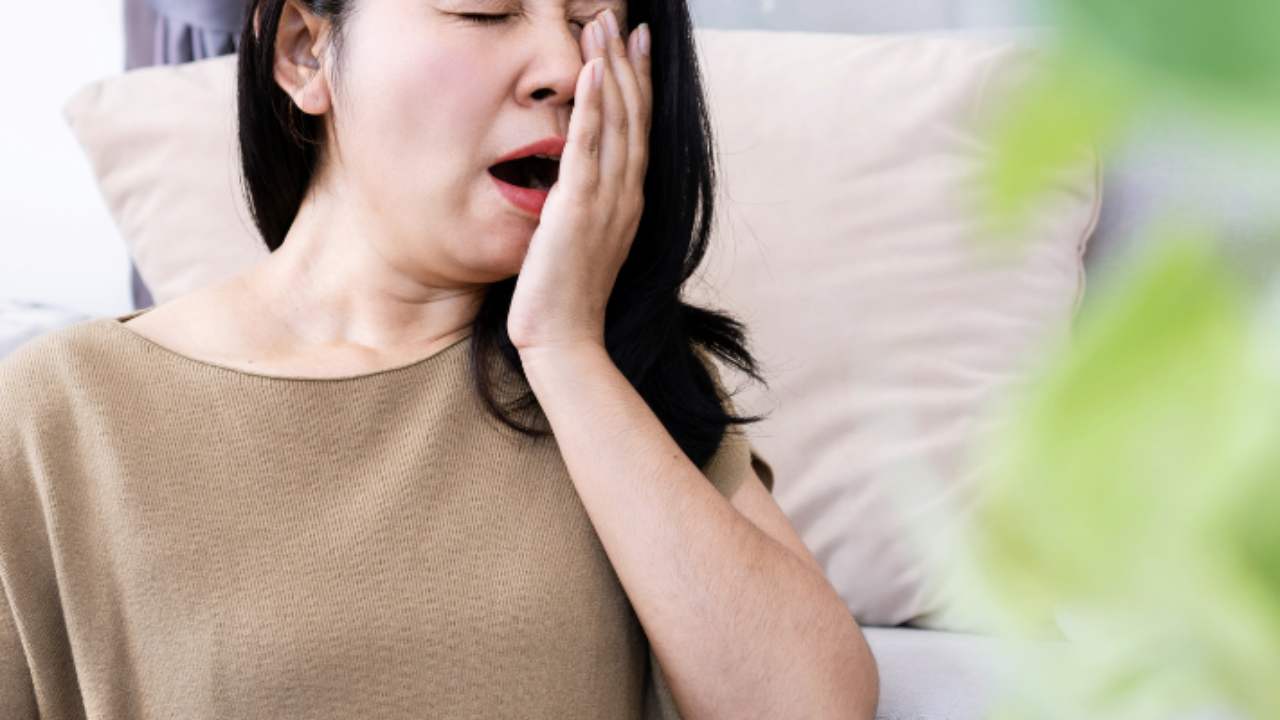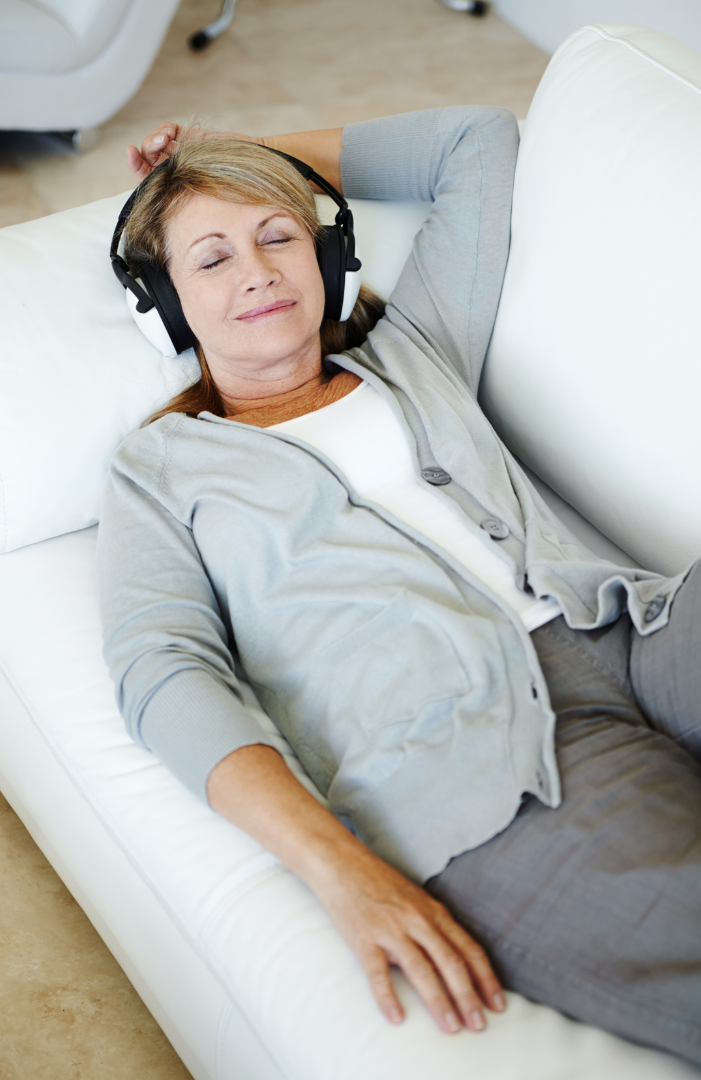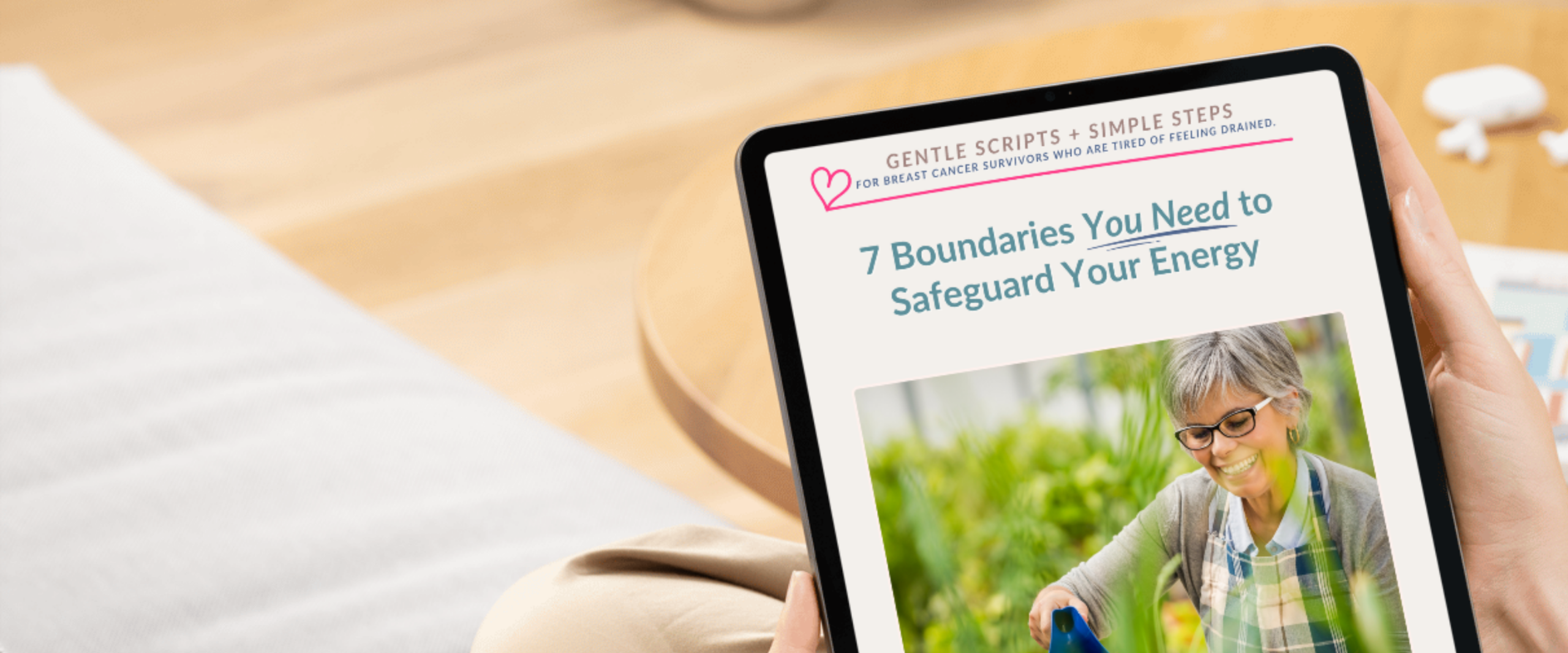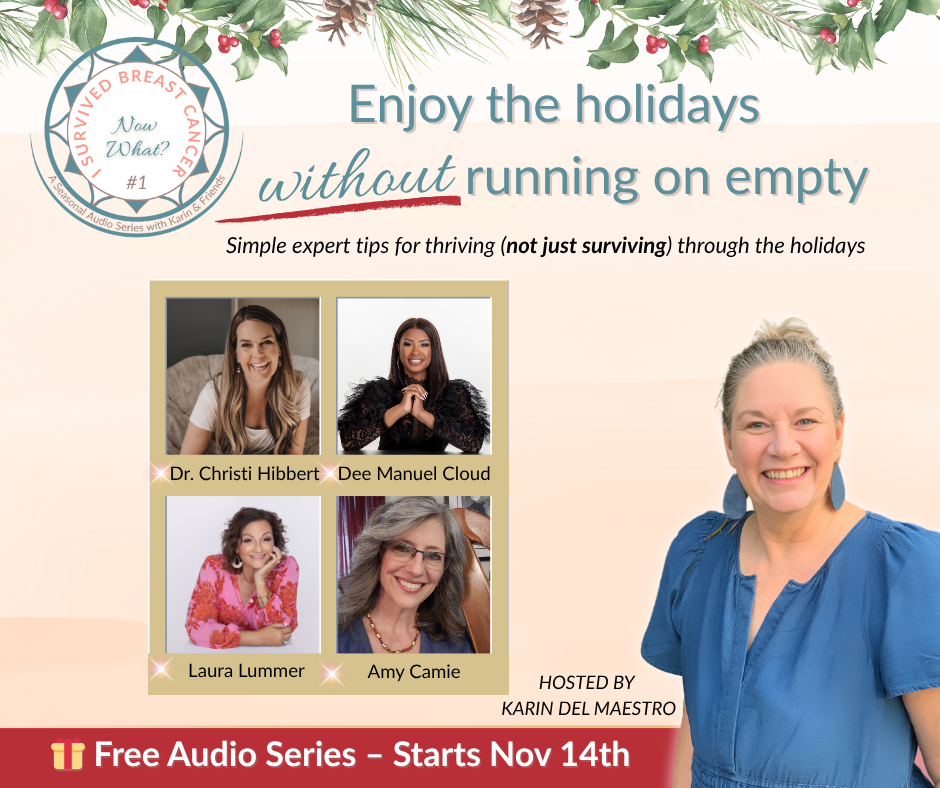#4: Are You Struggling With Breast Cancer Related Fatigue?
Jul 26, 2023
Are you finding that you're doing all that you can to make it through most days, between work, trying to cook and keep up with the cleaning, but struggle to do even that, let alone have zero energy to do any fun things?
YOU.ARE.NOT.ALONE.
We are rarely prepared when we end active treatment for the brick wall of exhaustion that hits us.
In this weeks episode and you'll discover:
- Why do you suddenly feel SO wiped out when treatments end?
- How long before you can expect to feel like yourself again?
- What you CAN do (and your doctor is not telling you this) to naturally boost your energy, so that you're not just waiting to feel like yourself again!
Let's define fatigue...
Fatigue is extreme tiredness and exhaustion. It doesn’t always go away with rest or sleep and may affect you physically and emotionally. It’s a very common side effect of breast cancer and its treatments, and may last for weeks, months or longer after your treatment has finished.
Everyone knows what it feels like to be tired sometimes but if you have cancer-related fatigue you may feel like you have very little energy. You may find it difficult to do simple everyday tasks and it may stop you from doing things you want to do.
Everyone’s experience of cancer-related fatigue is different. Know your limits and be kind to yourself!
It can be difficult to describe fatigue and other people may not always understand how you are feeling. Reading this information & watching this video may help family and friends understand fatigue more.
What causes cancer-related fatigue?
Breast cancer treatment itself...
Most of the treatments used for breast cancer have side effects that can contribute to fatigue.
- Surgery: You may feel tired after surgery. This can be due to the stress on your body, any pain after surgery and the time it takes to heal. Having a general anesthetic can also affect your energy levels. If you had treatment before surgery such as chemotherapy or targeted therapies you may still be feeling tired from this.
- Chemotherapy: The side effects of chemotherapy may include a lowered resistance to infection, anaemia (too few red blood cells in the body) and altered eating patterns. These side effects can cause or worsen fatigue.
- Radiation: Traveling back and forth to the hospital/clinic for radiation can make you feel increasingly tired and the treatment can cause fatigue because of the way it affects your body. This tiredness may start or get worse after radiation has finished.
- Hormone (endocrine) therapy: One of the main side-effects of many of the hormone blocking or reducing medications is fatigue.
- Trouble sleeping
- Other medications & side-effects: You may need to take other medicines alongside your main treatments, and these can also contribute to fatigue. For example, pain relief, anti-sickness drugs, sleeping tablets and antidepressants may make you feel very tired. Steroids are often used alongside chemotherapy, which can make you feel restless and may disrupt your sleep patterns.
- Breast Implant Illness: I'd be remiss if I missed this off this list, because of my own experience with breast implants after breast reconstruction and the terrible fatigue I endured for the year that they were in my body. AND the relief I felt within one week of removing them...I'll be sharing more on this in the next coming weeks.
What isn’t talked about so much are the Mental & Emotional causes of fatigue…
Many people feel worried, anxious and fearful about their diagnosis, treatment and recurrence. You might be familiar with the “what if’s” and pretending to be “fine” for those around you, but inside you’re not fine at all.
These feelings and emotions can make your fatigue worse. As does having to feel like you have to put on a smile and pretend to be ok.
What I rarely see discussed is the fact that receiving a breast cancer diagnosis is traumatic (no matter the stage).
And when we hear those spine-chilling words, we go into survival mode…an automatic response in our bodies to keep us alive. You may have heard of fight or flight, but there are 2 others freeze and fawn.
If you’ve ever been in an emergency situation you’ll likely relate to this story…you go go go through the emergency and afterwards cry uncontrollably or pass out fast asleep.
It’s only AFTER active treatment has ended, that our body believes we are safe enough to let down our guard…and this is often when we get a rush of fatigue, crying at the drop of a hat…
This can go on for weeks, months or years…
How long before I can expect to feel like myself again?
A = Date of diagnosis
B = Date of last active treatment (chemo/radiation/surgery)
C = B - A
This is NOT exact but, it's a useful guideline to help manage our expectations, and practice self-compassion as we go through our recovery journey.
Tips for managing your fatigue...
- Tell your oncologist, medical doctors how you’re feeling. Your fatigue may have a treatable cause, for example something like anemia.
- Try using a fatigue diary. This involves recording your level of fatigue every day from 1 (no fatigue) to 10 (extreme fatigue). This can help you think about how your treatment affects your energy levels so you can plan your day and make the most of the times when you have more energy. If you have finished treatment it can still be useful to keep a record of when you are more or less tired so you can plan any activities, especially those that require more energy. This is also useful to note your stress/ anxiety level along with the fatigue…to connect some dots. I’ve put together a fatigue / stress tracker for you to help track your fatigue and see if there’s a correlation to stress and/or anxiety. You can get your tracker here (just tell me where to send it over).
- There is strong evidence that regular moderate exercise (such as walking, cycling or swimming) can help reduce fatigue. Try to do it early in your day, as it’s likely you’ll feel more fatigued as the day goes on.
- Plan your day to balance your activities and rest times. Try and get plenty of rest between your daily activities, without feeling guilty. Power naps, no longer than 30 minutes have been proven to be highly effective.
- Use relaxation techniques to help you relax and regain energy. Refilling your teapot.
- Drink plenty of fluids (6–8 glasses a day) to keep hydrated. Being dehydrated can make you tired.
- Eating well can help improve your energy levels. Make the most of the times when your appetite is good and try to choose foods that give you energy over a period of time, like nuts and cereals. Sugary foods may give you a quick fix but won’t keep your energy levels up for very long.
- Try and accept offers of practical help from others where possible, for example help with household chores, food shopping or getting to appointments. Often people want to help but don’t know what you need, so let them know.
- There is some evidence that being well supported may help to reduce fatigue. Think about the kind of support that would suit you – for example, you could join a local support group if there’s one in your area, or have some individual coaching or counseling, or join our monthly emotional support group, co-hosted by myself and Dr Christi Hibbert >> Sign up for monthly reminders HERE <<
The biggest thing I want for you to take away from this episode is that you are not alone and you do not just have to suck it up and wait to feel better!!
xoxo Karin
TODAY’S TEA IS 3RD EYE CHAKRA TEA
Our Third-eye chakra, controls our ability to see the big picture and connect to our intuition, or our inner guide. Think of it as the eye of the soul: It registers information beyond the surface level. >> Shop Buddha Chakra Teas HERE.* <<
* Denotes that Karin may receive a small commission, that does not impact your purchase price.
As based on an article from www.BreastCancerNow.org



